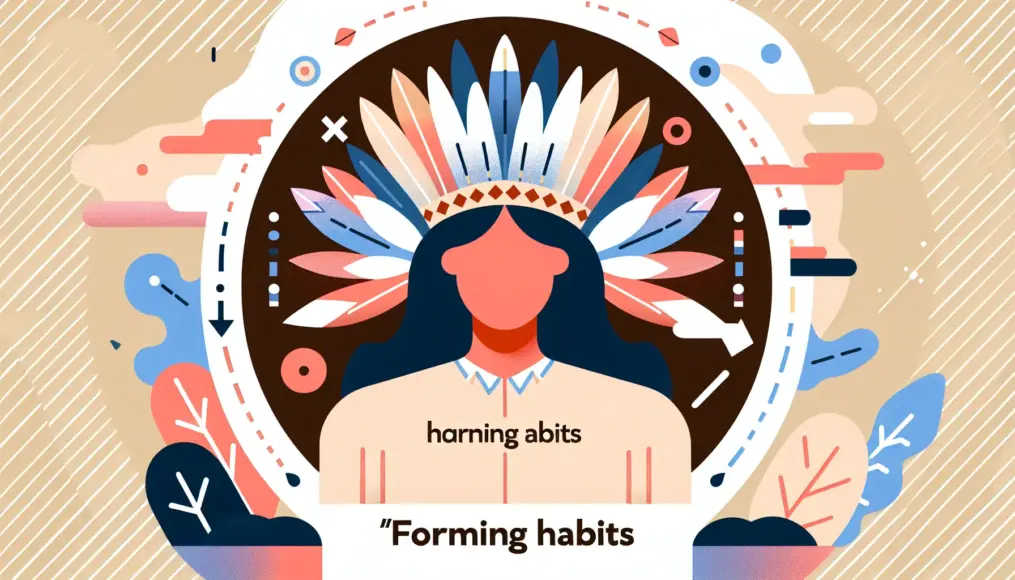Controlling our emotions is an essential skill that greatly influences our everyday lives. As we navigate daily stress, anxiety, joy, and sadness, how we process our emotions and make decisions can significantly impact our overall quality of life. In this article, we will explore practical steps and techniques to help you gain control over your emotions.
By enhancing self-awareness, you can better understand the ebb and flow of your emotions and learn effective ways to address them. Additionally, by incorporating specific techniques, you can manage stress and cultivate positive thinking, leading to richer and more fulfilling relationships. Let’s dive into how we can master the art of emotional control together.
- Understand the definition of emotions and their impact on your life
- Practical steps to enhance self-awareness
- Specific techniques to support stress management and positive thinking
What Are Emotions? Understanding Their Importance
Emotions play a crucial role in our lives. The feelings of joy, sadness, anger, and anxiety that we experience daily significantly influence our actions and thoughts. Understanding emotions is an essential step toward enhancing self-awareness and making better choices. In this section, we will explore the definition of emotions, their various types, and the impact they have on our lives.
Defining Emotions and Their Types
Emotions refer to the internal reactions and sensations we experience. Psychologically, emotions are understood as responses to specific stimuli. There are many types of emotions, including joy, sadness, anger, fear, surprise, and disgust. Each emotion arises from different situations and experiences, impacting our behavior and thoughts.
Emotions serve not only as reactions but also play a vital role in self-understanding and communication with others. For instance, feeling joy can foster connections with others, while anger or sadness can negatively affect relationships. Understanding and appropriately expressing emotions is essential for building better relationships.
- Emotions are internal reactions that come in various types.
- They are crucial elements that influence our behavior and thoughts.
- By understanding emotions, we can improve self-awareness and relationships.
The Impact of Emotions on Our Lives
Emotions greatly influence the quality of our lives. Positive emotions can reduce stress, enhance creativity, and contribute to more fulfilling days. On the other hand, negative emotions can have various detrimental effects on our physical and mental health, leading to a decline in our overall quality of life. For example, chronic stress and anxiety can harm our health and trigger a range of issues.
Therefore, controlling emotions is vital for leading a healthy life. By understanding and addressing our emotions, we can manage stress and cultivate better relationships. Throughout this section, we aim to help you recognize the importance of emotions and deepen your self-understanding.
- Positive emotions enhance the quality of life.
- Negative emotions can negatively impact health.
- Managing emotions can lead to better stress management and improved relationships.
Steps to Managing Your Emotions
To effectively manage your emotions, the first step is to enhance your self-awareness. By understanding your feelings and recognizing the situations that trigger them, you can discover appropriate ways to cope with your emotions. Keeping an emotion diary can be a helpful tool for tracking daily emotional fluctuations and identifying patterns. In this section, we’ll dive into methods for boosting self-awareness and utilizing an emotion diary.
Boosting Self-Awareness
Improving self-awareness is crucial for emotional control. By accurately recognizing what you’re feeling, you can better understand the origins of those emotions. For instance, if you experience stress, pinpointing its cause can help you handle similar situations more effectively in the future.
To manage your emotions, it’s essential to listen to what you’re feeling. Instead of ignoring or suppressing your emotions, adopt a mindset of acceptance and understanding. This approach allows you to act deliberately rather than being swept away by emotional waves.
- Enhancing self-awareness deepens your understanding of emotions
- Identifying the causes of your feelings leads to effective coping strategies
- An accepting attitude toward your feelings is crucial
Utilizing an Emotion Diary
An emotion diary is a powerful tool for recording your daily feelings. By jotting down events and your emotional responses to them, you can more easily spot patterns in your emotions. For example, you might notice a tendency to feel stressed in certain situations. This information is invaluable when considering specific approaches to managing your emotions.
When maintaining your emotion diary, it’s beneficial to document the context in which your feelings arise, the emotions themselves, and your thoughts or actions at that moment. This practice helps you identify emotional triggers, allowing you to devise strategies for future encounters with similar situations. Additionally, writing in your diary enables you to view your feelings objectively, fostering the ability to respond calmly.
- Keeping an emotion diary helps you grasp emotional patterns
- It’s helpful to include context, emotions, and thoughts in your entries
- Viewing feelings objectively enhances your capacity for calm responses
Practical Techniques for Emotional Control
Learning to control your emotions is essential, and acquiring practical techniques can make all the difference. Knowing how to respond in moments of heightened emotions or stress allows you to handle situations more calmly. In this section, we’ll explore breathing techniques, mindfulness, and how to incorporate positive thinking into your daily life.
Breathing Techniques and Mindfulness
Breathing techniques are fundamental for managing emotions. Taking deep breaths helps lower your heart rate and creates a relaxed state. This is especially useful during times of stress or anxiety; just a few deep breaths can help restore your inner peace.
Mindfulness is another effective approach for emotional control. It involves focusing your awareness on the present moment, allowing you to observe your emotions and thoughts objectively. This practice enables you to rethink your emotional reactions and develop the ability to respond more calmly. By dedicating a little time each day to practice breathing techniques and mindfulness, you can maintain your composure without getting swept away by emotional waves.
- Deep breathing relaxes the mind
- Utilizing breathing techniques during stressful times is effective
- Mindfulness helps cultivate the ability to observe emotions objectively
Incorporating Positive Thinking
Positive thinking is a powerful tool for emotional control. By cultivating a habit of gratitude for the small things in your daily life, you can reduce the grip of negative emotions. For instance, reflecting on the good things that happened each day before going to bed can help nurture positive feelings.
Additionally, when negative thoughts arise, consciously replacing them with positive affirmations can be a beneficial practice. By integrating positive thinking into your daily routine, you can enhance your ability to control emotions and build better relationships.

If you’re interested in this topic, I recommend checking out this article on “Practical Methods and Techniques for Controlling Emotions” for a deeper understanding. It details specific strategies and techniques packed with helpful information for everyday life.
- A habit of gratitude fosters positive feelings
- Practicing replacing negative thoughts with positive ones is effective
- Consciously incorporating positive thinking makes emotional control easier
Personal Experience: Success Stories in Emotional Control
Taking control of our emotions can have a profound impact, something I’ve come to realize through my own experiences. There was a time in my life when I felt overwhelmed by emotional highs and lows, but by experimenting with various techniques, I was able to manage stress and improve my relationships. In this section, I’ll share my approaches to stress management and how mastering emotional control has transformed my interactions with others.
My Stress Management Techniques
One of the stress management techniques I practice daily is focused breathing. Taking just a few minutes for deep breathing during work breaks helps clear my mind and refresh my perspective. Additionally, keeping an emotions journal has been invaluable in tracking my feelings and identifying stress triggers. This practice has allowed me to recognize the situations that tend to stress me out, enabling me to develop effective coping strategies.
Moreover, I’ve found that consciously adopting a positive mindset has significantly reduced everyday stress. By cherishing small successes and expressing gratitude, I’ve been able to ease negative emotions. Implementing these stress management techniques has greatly enhanced my ability to control my emotions.
- Deep breathing and emotion journaling are effective stress management tools.
- Recognizing emotional patterns makes it easier to develop coping strategies.
- A positive mindset can alleviate daily stress.
Improving Relationships Through Emotional Control
Once I learned to control my emotions, I noticed a positive shift in my relationships. I used to become easily emotional and found myself in conflicts with friends and family over minor issues. Now, I can approach situations with a level head. By expressing my emotions appropriately, I’ve improved communication with others and built deeper trust.
Furthermore, being able to remain calm when I feel stressed has allowed me to be more considerate of those around me. This shift has minimized misunderstandings and miscommunications, ultimately leading to healthier relationships. My ability to control my emotions has been a key factor in significantly enhancing the quality of my connections with others.

If you found this article interesting, you might also enjoy “Exploring Effective Emotional Control: Tips for Maintaining Your Inner Balance.” This piece offers practical methods for managing your emotions and maintaining mental balance, which can be incredibly beneficial for improving stress management and relationships.
- Controlling emotions can lead to better relationships.
- A calm response fosters trust and connection.
- Maintaining a composed mindset during stress helps cultivate empathy.
Conclusion
Controlling our emotions is crucial for enhancing the quality of our lives. Throughout this blog, we’ve explored everything from understanding our emotions to practical methods for managing them. By increasing our self-awareness and incorporating techniques like breathing exercises, mindfulness, and positive thinking into our daily routines, we can truly improve our emotional control.
Moreover, real-life experiences have shown us that effectively managing our emotions can lead to better stress management and improved relationships. By gaining a deeper understanding of ourselves and reevaluating our approaches to emotions, we can lead more fulfilling lives. I encourage you to integrate these techniques into your everyday life and cultivate your ability to control your emotions.
- Understanding emotions enhances self-awareness, which is the first step to control
- Use breathing techniques, mindfulness, and positive thinking to manage emotions
- Emotional control contributes to better stress management and improved relationships
I hope that by mastering emotional control, you can enrich your life even further. I invite you to take on this challenge! Please share your thoughts on this article or your own experiences in the comments.













































Comment